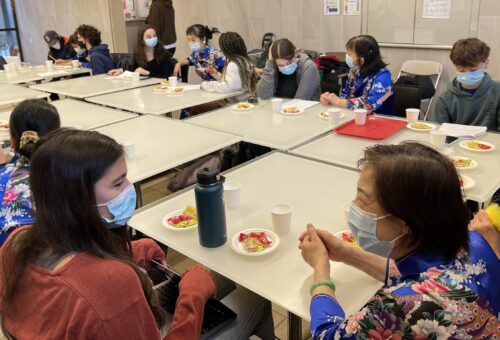Middle School Modern Languages
In order for students to acquire a new language, students need to hear, read, and understand it a lot. To achieve this, we maximize students’ exposure to Chinese, French, or Spanish through comprehensible language, including oral, written, and visual storytelling. We focus on the instruction and use of the high-frequency vocabulary, words that are the most commonly used in the language and can be used across many different situations.
Students read books and interesting articles, watch videos, co-create stories, act out stories, listen to songs, and talk about the message in the language. This way, students also learn about the culture and geography organically, using the language students know.
Incoming students rank their language choices (Chinese, French, or Spanish).
- 6th graders can take either Chinese A, French A, or Spanish A.
- 7th graders can take the A or B section
- In 8th grade, most students will take the C level of the course (or B level if they took A in 7th grade)
Want to learn more? The video below explain how we teach language and what the student experience is in all of our language courses.
